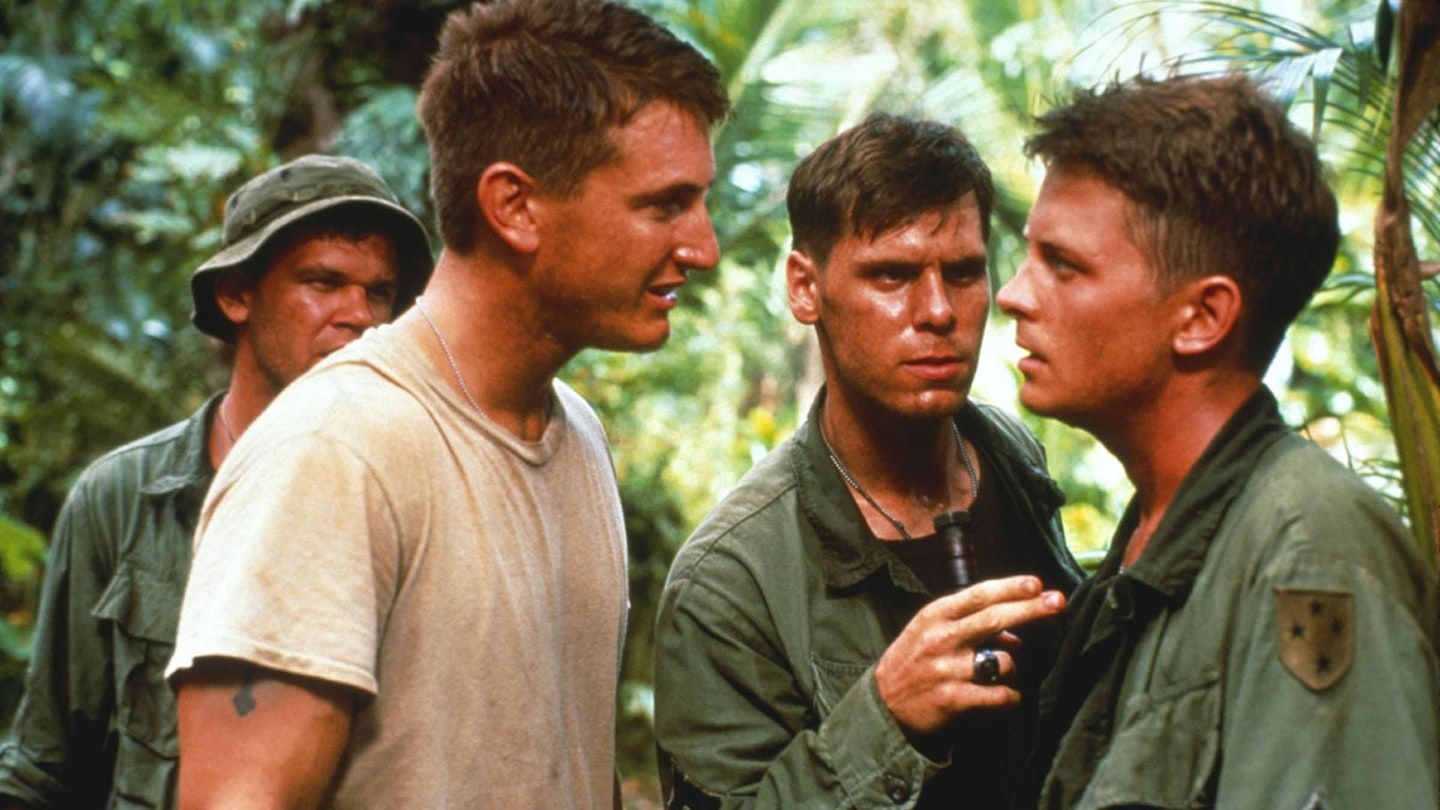Despite the lurking amorality of his previous films, Brian De Palma delivered an about face with this staunchly moral, serious and moving tale of the atrocity of war. Not the grand sin of war in general, but the specific destruction of order amongst soldiers far from home who have lost sight of their own humanity.
Meserve, played with Penn’s usual rugged intensity and brute force, is a man whose survivalist impulses have come askew; the death that surrounds him has allowed him to reinvent himself. He’s dominant but cartoonish, recklessness has overtaken him and his men follow him, struck that such masculinity could keep them alive. When he decides, during a long-range reconnaissance, they can have their way with a Vietnamese girl, they run into an unforeseen problem — the relative innocence, and hence intact morality, of new recruit Eriksson.
In one of Michael J. Fox’s few serious roles, he injects this blinkered young man with a naiveté, a yet to be crushed sense of basic goodness. It is this that drives him to oppose the dreadful actions that follow. De Palma mixes up these elements with extraordinary skill, reeling in his familiar gimmickry he exposes the conflicting pressures of warfare. Survival requires a shedding of natural behaviours, to find something animalistic, but where does it stop? How does a solider, in the shocking daily loss of comrades, retain who he is? Meserve may be beyond reach. Eriksson is on a journey into disillusionment.
Tightly structured, the film is told in flashback from the stone faced Eriksson on a San Francisco bound train catching sight of a girl who resembles their victim. From here it builds through a series of concentrated vignettes, from the almost comic spill of violence and the surreal periods of quiet, toward the crime at its centre. This brutal act is examined with a brazen, desperate logic — that Meserve has been denied leave (his channel to local whores), that the sudden loss of their radio man has stirred a natural anger. But De Palma, at his most personal, remains staunch, there are no extenuating factors, war is no excuse, and his film remains a telling damnation of man’s capacity for evil.
